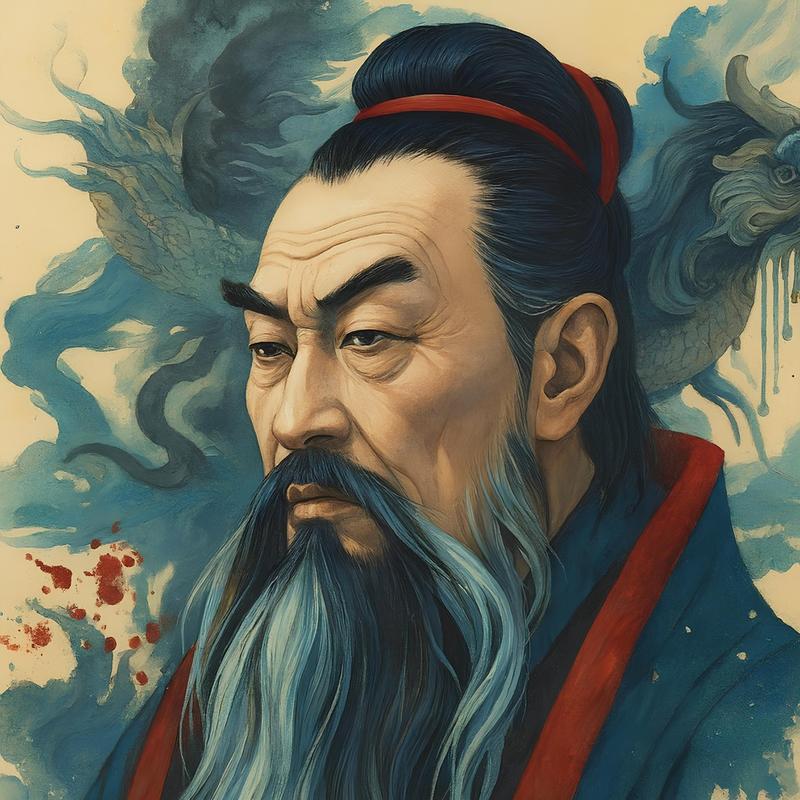
时长:
91分钟
播放:
137
发布:
2个月前
主播...
简介...
船的本性是更容易在水上行驶,如果硬要拖着它走在路上,反而费力又不合适。为什么船有这样的特性?从事物的本性到人之价值、人生意义等诸多方面,朱熹认为,要解释这些事实,我们必须假定有一种无形的实体或根源——「理」 (Pattern)。
儒家哲学中许多技术性、系统性的理论,实际上是在宋代之后,由更为精深的思想家们逐步发展出来的。本期播客着重讨论「新儒家」思想家中的杰出代表——朱熹关于「理」的形而上学思想,并邀请到Stephen C.Angle教授 参与讨论。
本期包括:
* 朱熹怎么看对事实与价值的区分
* 整体主义与个人主义伦理路径的对比
* 朱熹世界观中对于类似宗教信仰的态度(以及他为什么不认同)
时间轴
0:00 Part 1 —— 预告 Ep20「儒学🆚佛学」的辩论(线下录制!)
10:57今日主题引言:什么是「宋明理学/新儒家」?
15:54 Part 2 —— 朱熹的形而上学
15:55介绍嘉宾Stephen Angle
22:50宋明理学概述
27:24朱熹对「理」的阐释
30:33节选自《大学或问》
31:39使人信服「理」的原因是什么?What would motivate someone to believe in Pattern?
35:25「穷理」的目标是否完全服从于伦理的目的? Is the goal of "understanding Pattern" wholly subordinate to ethical goals?
40:01通过「格物」发现「理」
42:12为什么「理」不止是人造的产物?Why Patterns aren't just products of human artifice
45:27 朱熹整体论:「理一而分殊」
54:35为什么不能仅凭内省而得到「理」?Why we can't just grasp Pattern through introspection
56:59 「理」与「气」的关系
1:02:45「理」是否具有因果作用?Does Pattern have causal power?
1:05:11「理」使万物可为人知、可被解释Pattern makes things intelligible and explainable to humans
1:07:49关于「理」的发现:直接法与间接法的争论 Debates about direct vs. indirect methods of discovering Pattern
1:09:18 为什么「理」必须内在——自然性,诚意和知行转化的可能性 Why Patterns must be internal --naturalness and the possibility of wholehearted and transformative knowledge
1:14:15信仰「理」是否需要宗教信仰?Does belief in Pattern require religious faith?
1:24:56嘉宾结尾答问
重点讨论段落
朱熹对「理」的定义:
至于天下之物、则必各有所以然之故、与其所当然之则。所谓理也。
(Some Questions on theGreater Learning [大学或问] A/512; Angle and Tiwald’s translation)
目前节目持续更新中,每周一与你见面,欢迎订阅收听!如果你有任何想法或建议,欢迎在评论区留言,或前往 Warp, Weft, andWay 网站参与讨论。
其他参考资料
Stephen C. Angle (more about him and his research)
The Pursuit of Happyness 电影《当幸福来敲门》(film with Will Smith)
Neo-Confucianism (宋明理学)
ZhuXi 朱熹 (1130-1200CE)
Medieval philosophers outside of China: St. Anselm, Augustine, Duns Scotus, Thomas Aquinas, Moses Maimonides, Averroes, and Avicenna
Stephen C. Angle, Growing Moral: A Confucian Guide to Life
Stephen C. Angle and Yutang Jin, Progressive Confucianism and its Critics
Stephen C. Angle and Justin Tiwald, Neo-Confucianism: A Philosophical Introduction
Dai Zhen 戴震 (1724-1777, later critic of ZhuXi)
Chen Lai 陈来, 朱熹哲学研究 (Research on the Philosophy of Zhu Xi)
Wang Yangming 王阳明 (1472–1529)
Stephen C. Angle, Sagehood
“Wholeheartedness criterion”(discussed in Steve’s and Justin’s Neo-Confucianism and Justin’s article, “Confucianism and Neo-Confucianism“)
Søren Kierkegaard (1813–1855)(the name from which the adjective “Kierkegaardian” is derived, as in “Kierkegaardian faith”)
Pascal’s Wager
Analects 11.12 「未知生,焉知死?」
Daniel Gardner, translator, Learning To Be a Sage (translates many of Zhu Xi’s comments on reverential attention)
关键名词中英对照
Pattern (理), also translated as “principle“
格物 (“investigating things,”“getting a handle on things”)
生意 (“life impulse”)
理一分殊 (“Pattern is one, but itsmanifestations are many”)
天理 (Cosmic Pattern, HeavenlyPattern)
敬 (“reverential attention”)
气 (vital stuff, “ch’i“)
太极 (Supreme Pivot, Great Ultimate)
特别鸣谢 The Hong Kong Ethics Lab 的支持和赞助,以及 Warp, Weft andWay 网站对讨论环节的支持。
主持人:Richard Kim's website
Justin Tiwald's website
音频剪辑 & 中文 show notes: Lena
儒家哲学中许多技术性、系统性的理论,实际上是在宋代之后,由更为精深的思想家们逐步发展出来的。本期播客着重讨论「新儒家」思想家中的杰出代表——朱熹关于「理」的形而上学思想,并邀请到Stephen C.Angle教授 参与讨论。
本期包括:
* 朱熹怎么看对事实与价值的区分
* 整体主义与个人主义伦理路径的对比
* 朱熹世界观中对于类似宗教信仰的态度(以及他为什么不认同)
时间轴
0:00 Part 1 —— 预告 Ep20「儒学🆚佛学」的辩论(线下录制!)
10:57今日主题引言:什么是「宋明理学/新儒家」?
15:54 Part 2 —— 朱熹的形而上学
15:55介绍嘉宾Stephen Angle
22:50宋明理学概述
27:24朱熹对「理」的阐释
30:33节选自《大学或问》
31:39使人信服「理」的原因是什么?What would motivate someone to believe in Pattern?
35:25「穷理」的目标是否完全服从于伦理的目的? Is the goal of "understanding Pattern" wholly subordinate to ethical goals?
40:01通过「格物」发现「理」
42:12为什么「理」不止是人造的产物?Why Patterns aren't just products of human artifice
45:27 朱熹整体论:「理一而分殊」
54:35为什么不能仅凭内省而得到「理」?Why we can't just grasp Pattern through introspection
56:59 「理」与「气」的关系
1:02:45「理」是否具有因果作用?Does Pattern have causal power?
1:05:11「理」使万物可为人知、可被解释Pattern makes things intelligible and explainable to humans
1:07:49关于「理」的发现:直接法与间接法的争论 Debates about direct vs. indirect methods of discovering Pattern
1:09:18 为什么「理」必须内在——自然性,诚意和知行转化的可能性 Why Patterns must be internal --naturalness and the possibility of wholehearted and transformative knowledge
1:14:15信仰「理」是否需要宗教信仰?Does belief in Pattern require religious faith?
1:24:56嘉宾结尾答问
重点讨论段落
朱熹对「理」的定义:
至于天下之物、则必各有所以然之故、与其所当然之则。所谓理也。
(Some Questions on theGreater Learning [大学或问] A/512; Angle and Tiwald’s translation)
目前节目持续更新中,每周一与你见面,欢迎订阅收听!如果你有任何想法或建议,欢迎在评论区留言,或前往 Warp, Weft, andWay 网站参与讨论。
其他参考资料
Stephen C. Angle (more about him and his research)
The Pursuit of Happyness 电影《当幸福来敲门》(film with Will Smith)
Neo-Confucianism (宋明理学)
ZhuXi 朱熹 (1130-1200CE)
Medieval philosophers outside of China: St. Anselm, Augustine, Duns Scotus, Thomas Aquinas, Moses Maimonides, Averroes, and Avicenna
Stephen C. Angle, Growing Moral: A Confucian Guide to Life
Stephen C. Angle and Yutang Jin, Progressive Confucianism and its Critics
Stephen C. Angle and Justin Tiwald, Neo-Confucianism: A Philosophical Introduction
Dai Zhen 戴震 (1724-1777, later critic of ZhuXi)
Chen Lai 陈来, 朱熹哲学研究 (Research on the Philosophy of Zhu Xi)
Wang Yangming 王阳明 (1472–1529)
Stephen C. Angle, Sagehood
“Wholeheartedness criterion”(discussed in Steve’s and Justin’s Neo-Confucianism and Justin’s article, “Confucianism and Neo-Confucianism“)
Søren Kierkegaard (1813–1855)(the name from which the adjective “Kierkegaardian” is derived, as in “Kierkegaardian faith”)
Pascal’s Wager
Analects 11.12 「未知生,焉知死?」
Daniel Gardner, translator, Learning To Be a Sage (translates many of Zhu Xi’s comments on reverential attention)
关键名词中英对照
Pattern (理), also translated as “principle“
格物 (“investigating things,”“getting a handle on things”)
生意 (“life impulse”)
理一分殊 (“Pattern is one, but itsmanifestations are many”)
天理 (Cosmic Pattern, HeavenlyPattern)
敬 (“reverential attention”)
气 (vital stuff, “ch’i“)
太极 (Supreme Pivot, Great Ultimate)
特别鸣谢 The Hong Kong Ethics Lab 的支持和赞助,以及 Warp, Weft andWay 网站对讨论环节的支持。
主持人:Richard Kim's website
Justin Tiwald's website
音频剪辑 & 中文 show notes: Lena
评价...
空空如也
小宇宙热门评论...
暂无小宇宙热门评论

